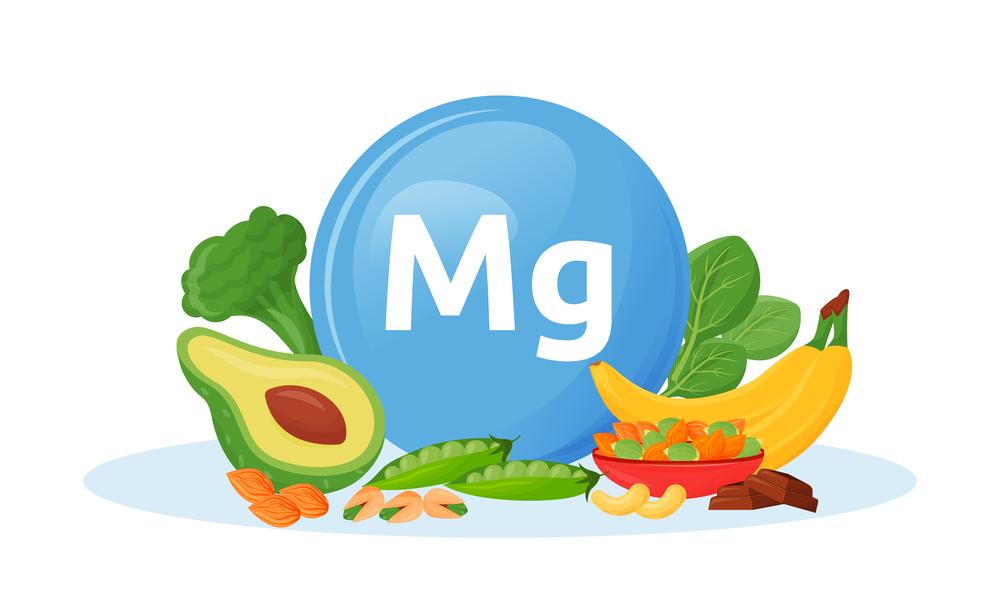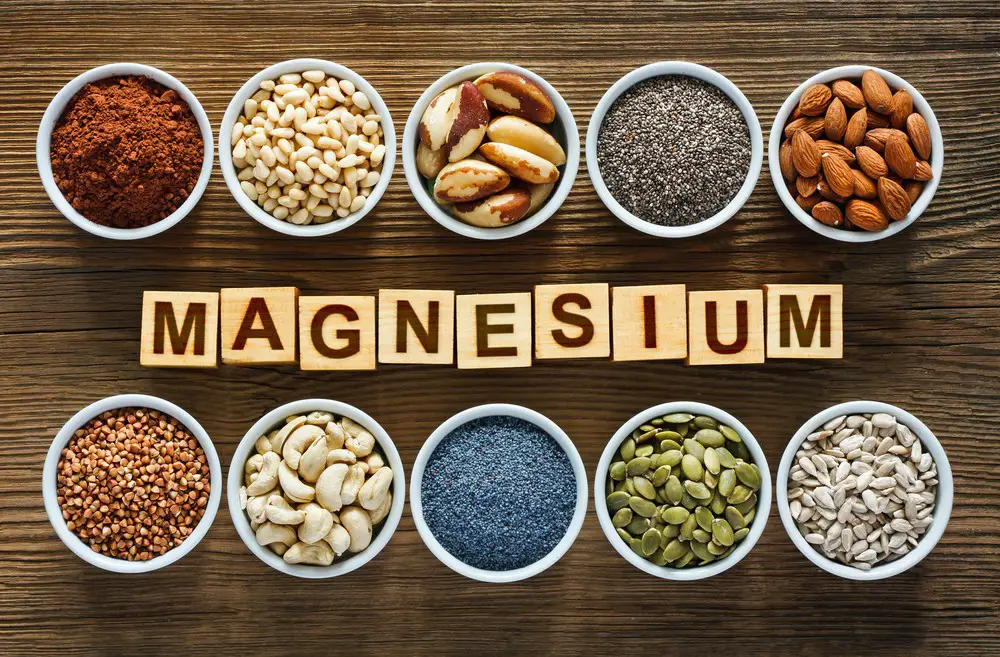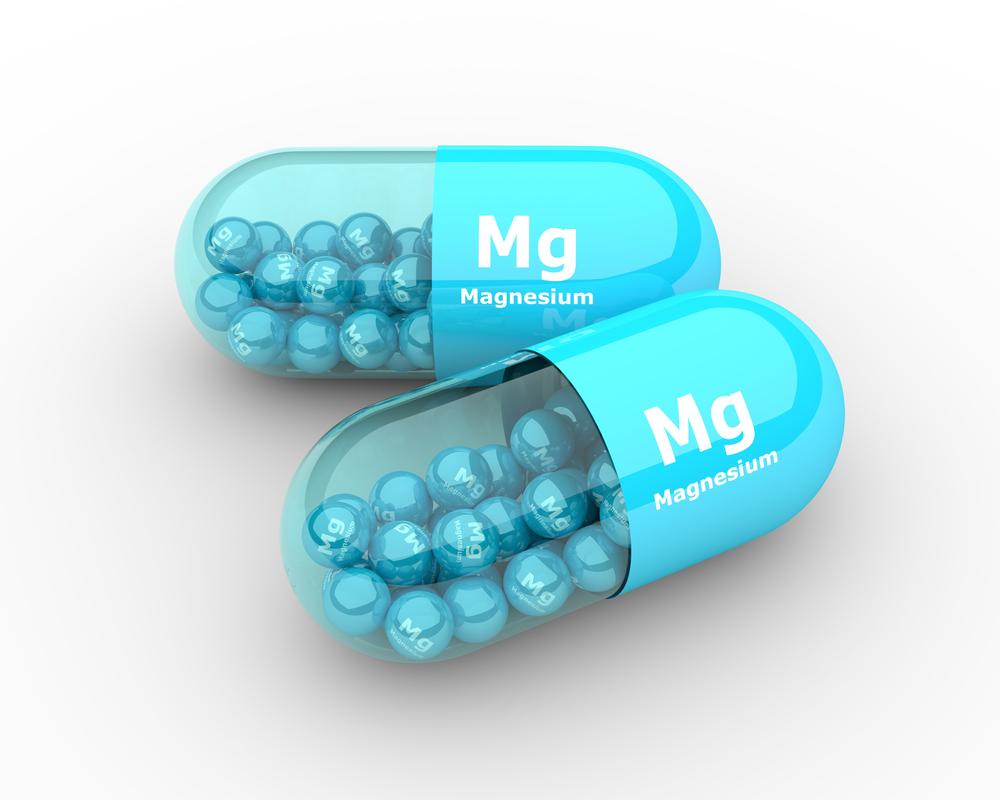As a BetterHelp affiliate, we receive compensation from BetterHelp if you purchase products or services through the links provided
Magnesium is a vital mineral that has several health benefits. That’s why you hear so much about its importance on social media and why your doctor may recommend a magnesium supplement.
Lisa Moskovitz, RD, is the CEO of Virtual Nutrition Experts. She also wrote The Core 3 Healthy Eating Plan. She recently told Women’s Health that it has become “the mineral MVP” because the body needs large quantities for several functions, including heart rhythm health, blood pressure and sugar regulation, proper nerve and muscle function, and better energy.
Getting enough magnesium shouldn’t be a problem if you regularly consume whole grains, vegetables, beans, bananas, and nuts. However, people with dietary restrictions and some health conditions struggle to get enough.
There are several magnesium supplement types available. However, discovering the best magnesium supplements for your needs can be tricky because it depends on whether you have a magnesium deficiency, want to support your overall health, or need help with a health issue.
Top Picks: Magnesium Supplements

When looking for the best magnesium supplements, you will realize that there are several types of magnesium, each with its own set of benefits. Magnesium supplements also come in capsules, tablets, liquids, gummies, and powder forms.
When choosing a magnesium supplement, then these are the top picks:
Nature Made Magnesium Glycinate
These capsules contain no artificial colors and are gluten-free, while the magnesium glycinate provides the all-round benefits of a magnesium supplement. Therefore, expect this capsule to be gentle on your tummy while scoring well in absorption. Nature Made Magnesium Glycinate promotes muscle relaxation and improves digestion. Reviewers on various sites report sleeping better. It’s also an excellent supplement for heart, nerve, and bone health. Two capsules a day give you 200 mg of magnesium.
Thorne Magnesium Bisglycinate Powder
If you prefer a powder form of magnesium, this one from Thorne Research Magnesium Bisglycinate Powder offers the best overall benefits. Mix one scoop daily into your food, shakes, or water to boost your magnesium intake by 200 mg. You can take it in the morning, after a workout, or at bedtime, depending on whether you want to take it for recovery, wind down, or to support your overall health. The powder is also NSF Certified, meaning it is free of any banned substances if you participate in professional sports.
Pure Encapsulations Magnesium Glycinate
These gluten-free and non-GMO capsules are also free from major allergens and are a well-tolerated form of magnesium. They contain 120mg of magnesium per capsule. Depending on your magnesium needs, you can take between one and four daily. The magnesium glycinate formulation contained in the capsule allows for higher doses without any side effects like gastrointestinal issues, especially when correcting deficiencies.

Benefits of Magnesium Supplements
Magnesium has several health benefits. Researchers have linked low levels to several health issues, including heart disease, type 2 diabetes, migraines, and mood disorders. Magnesium can’t solve all issues, but getting enough is essential through diet or supplements.
These are some of the benefits of increasing magnesium intake:
- Magnesium is present in all cells throughout the body, helping the molecules and enzymes in over 600 reactions. Increasing intake helps with energy and protein formation, gene maintenance, nervous system regulation, and muscle movements.
- Magnesium boosts energy production by taking blood sugar to your muscles and removing lactate, which causes fatigue, thereby improving your exercise performance.
- Magnesium can improve your sleep by activating the parasympathetic nervous system nervous system that is responsible for helping you calm down and relax. It also helps regulate melatonin, the sleep hormone that regulates the sleep-wake cycle. Therefore, a magnesium supplement can improve the quality and duration of your sleep.
- Magnesium deficiency leads to low bone density, leading to osteoporosis. A magnesium supplement can correct this.
- Magnesium helps regulate your blood pressure by relaxing the cells and preventing the constriction of blood flow in the veins and arteries. Studies have shown it also regulates other crucial minerals for controlling blood pressure.
- According to one study, magnesium reduces the risk of stroke by 2%.
- Even though magnesium is not a cure for headaches, studies show that taking a supplement can prevent and help with migraine treatment.
- Magnesium supplements also appear to help with anxiety symptoms and depression.
How to Choose the Best Magnesium Supplement
The daily recommended dosage of magnesium for adults in the U.S. is as follows:
- For males aged 19 to 30: 400 milligrams
- For males aged 31 and older: 420 milligrams
- For females aged 19 to 30: 310 milligrams
- For females aged 31 and older: 320 milligrams
- Lactating females need more
It would help if you considered several factors when choosing the best magnesium supplement:
Form of Magnesium

There are several forms of magnesium, each with different properties and absorbability. Magnesium supplements come in single-form magnesium or blends to provide more benefits. Research indicates the following benefits from each type of magnesium, and it’s worth noting that it’s ongoing. According to Healthline, these are the apparent benefits so far:
Magnesium glycinate – In this form, magnesium could help improve symptoms of depression. It contains glycine, an amino acid that may assist with sleep quality. It’s better absorbed and tolerated in high doses than other forms of magnesium.
Magnesium citrate – In this form, magnesium helps increase magnesium levels because it’s better absorbed. It also pushes water from the body into the gastrointestinal tract, which may help alleviate constipation.
Magnesium chloride – It possibly aids digestive ailments, including constipation and heartburn. It can also help replenish the body’s magnesium levels.
Magnesium sulfate – Commonly known as Epsom salts, it’s added to bathwater to help relieve muscle pain.
Magnesium oxide – May relieve migraine, depression, and anxiety.
Magnesium malate – Helps increase magnesium levels in the body and may help treat fibromyalgia.
Magnesium lactate – Appears to improve the body’s magnesium levels and reduce stress.
The appropriate dosage depends on the Recommended Dietary Allowance for a person’s gender and age, health condition, and whether they have a condition affecting magnesium absorption. There’s also a Tolerable Upper Intake Level for getting magnesium from supplements. Therefore, unless otherwise advised by a health professional, you should not get more than 350mg daily to avoid potential side effects like stomach cramps, diarrhea, and nausea.
Additionally, magnesium supplements can interfere with some medications, such as antibiotics and other prescription drugs. Therefore, ask your doctor to help you choose the best supplement based on your needs, health, and medications.
Magnesium Supplements for Better Sleep
 The best magnesium supplements for better sleep should contain magnesium glycinate. Here are two that get positive reviews:
The best magnesium supplements for better sleep should contain magnesium glycinate. Here are two that get positive reviews:
Natural Vitality Calm Sleep Magnesium Glycinate Capsules
The supplement includes magnesium glycinate, melatonin, L-theanine, and GABA for their relaxation-promoting elements. The sleep hormone melatonin helps the body sleep by regulating its internal clock. Each capsule contains 220 mg of magnesium; the recommended dosage is two at bedtime.
Rest Support Magnesium Supplements from Sleep is the Foundation
If you have insomnia and cannot get a good night’s rest, these capsules contain 200 mg of magnesium blended with GABA, L-theanine, and L-tryptophan to encourage a good night’s rest. These capsules also contain herbs that promote calmness and relaxation, including the extract from chamomile flowers, jujube fruit, and lemon balm. They are not habit-forming and don’t contain sodium, sugar, or wheat.
Boost Your Energy with Magnesium Supplements
Magnesium has several functions, like processing enzymes, converting glucose to energy, and moving nutrients where needed. One of these is to boost energy production by taking blood sugar to your muscles and removing lactate, which causes fatigue. Its actions can help boost your energy.
Therefore, you need magnesium to maintain energy levels and relieve tiredness. Here are two of the best magnesium supplements to take to boost your energy:
Now Magnesium Caps
The composition of this magnesium supplement includes magnesium oxide, magnesium citrate, and magnesium aspartate in a 400 mg capsule. That means you only need one daily to help boost your energy while improving your muscle, nerve, and bone health. Magnesium Caps help with glucose metabolism thanks to the enzyme function supported by its magnesium composition. The capsules are vegan, kosher, non-GMO, soy-free, and keto-friendly. Besides the magnesium trio, you also get a vitamin D3 and zinc boost from this supplement. Therefore, you will get an energy boost and may see mood and immune system improvement, too.
Farm Haven Magnesium Glycinate + Malate
Magnesium malate increases magnesium intake and may boost your energy. In this formula from Farm Haven, the combination of magnesium glycinate and malate increases absorption and has added vitamin D3. Together, they help increase energy and brain function. The supplement also helps nerve and muscle function while strengthening your bones and immune system.
Magnesium Supplements for Muscle Recovery
Muscle recovery after an intense workout is significant. Magnesium can assist with this because it reduces soreness and inflammation. Finding the best magnesium supplements for muscle recovery can seem challenging, but here are two that you can choose between these to aid your post-workout recovery:
MgSport Magnesium Supplement
Enhanced with vitamins B6, D, and E for muscle recovery, you can expect MGSport Magnesium Supplement to improve muscle recovery while reducing muscle soreness and cramps. The vitamin contains no other minerals or electrolytes, but it has an excellent rate of cellular absorption. Its pure formula makes it easy to digest. Some people have said the supplement causes mild drowsiness but has shown amazing results in muscle recovery.
Sunergetic Premium Magnesium Citrate Capsules
Another strongly recommended magnesium supplement for muscle recovery is Sunergetic Premium Magnesium Citrate Capsules, which has shown excellent overall results. It’s a popular choice for athletes and those who enjoy intensive workouts. Its high absorption rates provide maximum benefits. The capsule size is relatively large, but these are suitable for people with various dietary restrictions since they are gluten-free and non-GMO.
Improve Heart Health with Magnesium Supplements
Maintaining a healthy heart is important, and magnesium is an essential mineral for this organ since it regulates blood pressure and assists with maintaining a steady heartbeat. Choosing the best magnesium supplement to support a healthy heart can seem complicated, but here are two highly rated ones:
Luma Nutrition Magnesium Glycinate
This supplement’s magnesium and glycine combination makes it an excellent choice for relaxing blood vessels, normalizing heart rhythm, and reducing hypertension. Luma Nutrition Magnesium Glycinate supports your heart health and function in several ways thanks to its formula, which binds the magnesium to the amino acid glycine. Other cardiovascular benefits of this supplement include its ability to stop calcium from accumulating in the arteries, which can lead to stiffness and atherosclerosis. The high-quality magnesium is also well-absorbed, making it gentle on the stomach.
Nutricost Magnesium+ Extra Strength 420mg
In this extra-strength formulation, you require only one capsule to get all the benefits of magnesium and maintain a healthy heart. It also acts as an excellent relaxant. Because it comes in a high dose, it can sometimes have a laxative effect.
The Science Behind Magnesium Supplements
Even though magnesium is critical to our well-being, most people don’t get enough of this mineral in their diets. The best magnesium supplements can provide the magnesium required to benefit our health. However, knowing the best form of magnesium for the desired effect is crucial because they serve different purposes. For example, magnesium glycinate calms anxiety and improves sleep, whereas magnesium citrate has a laxative effect. Consulting with a medical professional before taking a magnesium supplement is always best. Still, many reputable brands can make it easier for you to choose, thanks to their transparent labeling that makes it easy to know the ingredients and their properties.
Incorporating Magnesium Supplements Into Your Daily Routine: A Step-by-Step Guide
Integrating magnesium supplements into your daily life doesn’t have to be daunting. With the right approach, you can effortlessly make them a part of your wellness journey. Here’s how:
- Establish Your Needs: Before adding magnesium supplements to your routine, assess your dietary magnesium intake. If your diet is rich in whole grains, nuts, and leafy greens, you might need less supplementation than someone without these nutrients.
- Consult With a Professional: It’s always wise to consult with a healthcare provider before starting any supplement regimen, especially if you have underlying health conditions or are taking other medications.
- Timing is Key: Consider the timing of your magnesium intake for optimal absorption. Some find taking magnesium in the evening helps improve sleep quality, while others might prefer a morning dose to kickstart their day with energy.
- Start Slow: Begin with a lower dose to see how your body reacts. Magnesium can have a laxative effect, so it’s essential to increase your dosage as needed gradually and according to your body’s tolerance.
- Pair With Calcium: Balancing magnesium intake for those taking calcium supplements is crucial as these minerals work together for maximum absorption and effectiveness. A typical ratio recommended by health professionals is 2:1 calcium to magnesium.
- Choose the Right Form: Magnesium comes in various forms, such as citrate, oxide, and glycinate. Each has different absorption rates and purposes. For example, magnesium citrate is often recommended for its laxative effect, while magnesium glycinate is preferred for its calming effects.
- Monitor and Adjust: Pay attention to how your body responds to the supplement. If you experience adverse effects, consider adjusting the dose or trying a different form of magnesium.
- Integrate With a Balanced Diet: While supplements can help fill nutritional gaps, they work best with a balanced diet. Continue to eat magnesium-rich foods to support your overall health.
- Stay Hydrated: Magnesium intake can increase the need for hydration, so drink plenty of water throughout the day.
- Keep Track of Your Progress: Documenting your magnesium supplementation can help you monitor its effects on your health over time. Note any changes in your sleep quality, energy levels, muscle recovery, and overall well-being.
By following these steps, magnesium supplements can be a beneficial addition to your daily routine, enhancing your health in multiple aspects. Remember, the key to successful supplementation is consistency and mindfulness of your body’s needs and reactions.
Magnesium Supplements: A Boon for Mental Health and Sleep, But Not for Everyone

Magnesium has long been touted for its myriad health benefits, from supporting muscle and nerve function to contributing to bone health and energy production. Its role in mental health and combating insomnia has particularly captured the attention of both health professionals and those seeking natural remedies. Here’s a closer look at who can gain from magnesium supplementation and who might want to proceed cautiously.
Who May Benefit:
- Individuals with Magnesium Deficiency: Those diagnosed with magnesium deficiency are prime candidates for supplementation. Symptoms of deficiency can include insomnia, anxiety, depression, and other mood disorders, making magnesium supplements potentially beneficial.
- People Experiencing Insomnia: Magnesium plays a pivotal role in regulating neurotransmitters and can help relax the mind and body, promoting restful sleep. Individuals struggling with sleep onset or maintenance may find relief with magnesium, particularly in forms known for their calming effects, such as magnesium glycinate.
- Those with Stress and Anxiety: Magnesium can act as a natural relaxant, helping to manage stress and reduce anxiety levels. For people facing mild to moderate stress and anxiety, incorporating magnesium supplements might contribute to a more balanced mental state.
- Anyone with Poor Dietary Intake: If your diet lacks magnesium-rich foods like leafy greens, nuts, and whole grains, you might benefit from supplementation to fill this nutritional gap, potentially alleviating related mood and sleep issues.
Who Might Not Benefit:
- Individuals with Kidney Disorders: People with severe kidney dysfunction may not be able to excrete magnesium properly, leading to a risk of toxicity. Therefore, supplementation is not recommended without medical supervision.
- Those on Certain Medications: Magnesium can interact with various medications, including diuretics, heart medications, and antibiotics. If you’re on medication, consult a healthcare provider to avoid adverse interactions.
- People with Hypomagnesemia Due to a Medical Condition: When low magnesium is caused by an underlying medical issue, simply supplementing with magnesium may not address the root cause. A comprehensive treatment plan is necessary.
Considerations for Mental Health and Insomnia:
While magnesium can support mental health and improve sleep quality, it’s not a panacea. Effective management of severe anxiety, depression, or insomnia often requires a multifaceted approach, including lifestyle changes, therapy, and, in some cases, medication. Magnesium supplements can be part of this broader strategy but should not replace professional medical advice or treatment.
In summary, magnesium supplementation can benefit individuals dealing with magnesium deficiency, sleep disturbances, and mild to moderate stress and anxiety. However, it’s crucial to approach supplementation with awareness of one’s health status and in consultation with a healthcare professional, particularly for those with existing health conditions or those taking medication.
- Stress Management: What is the Relationship Between Stress and Addiction? - June 28, 2024
- Exploring Techniques to Maintain a Healthy Lifestyle without Drugs - May 28, 2024
- How Acupuncture Helps Treat Chronic Fatigue Syndrome - May 28, 2024
This site contains affiliate links to products. We will receive a commission for purchases made through these links.




